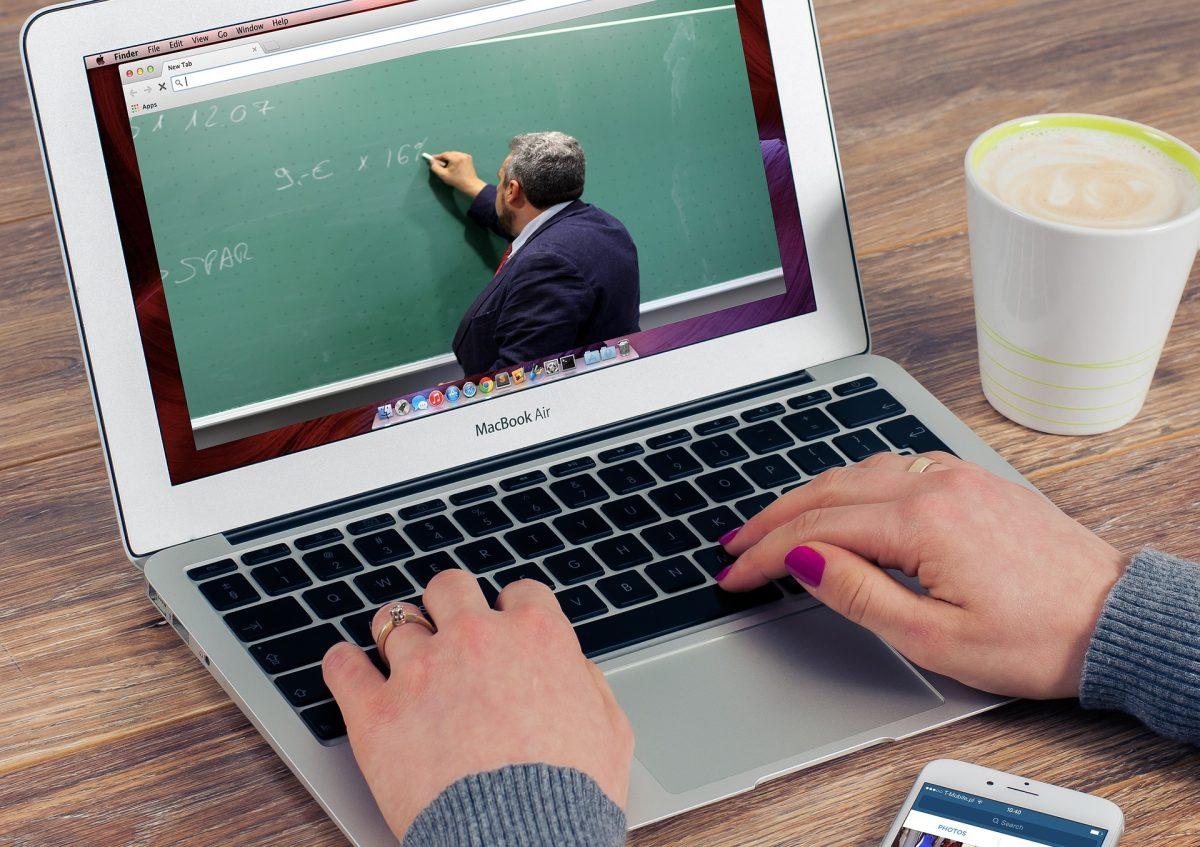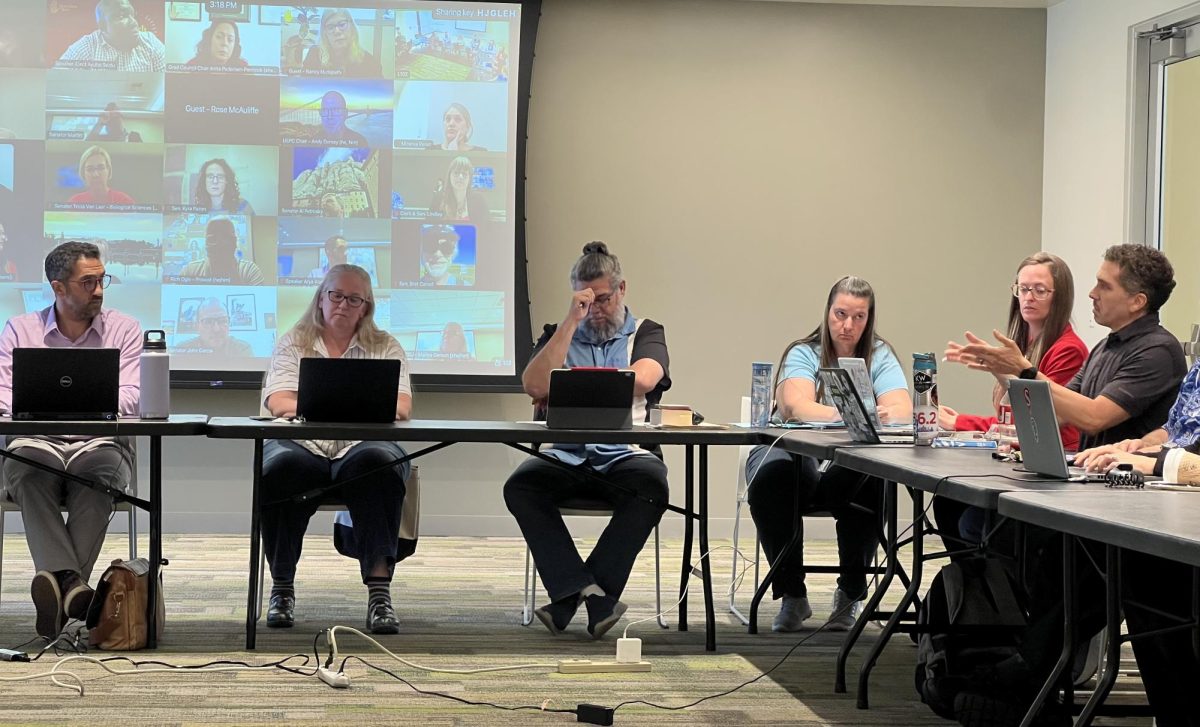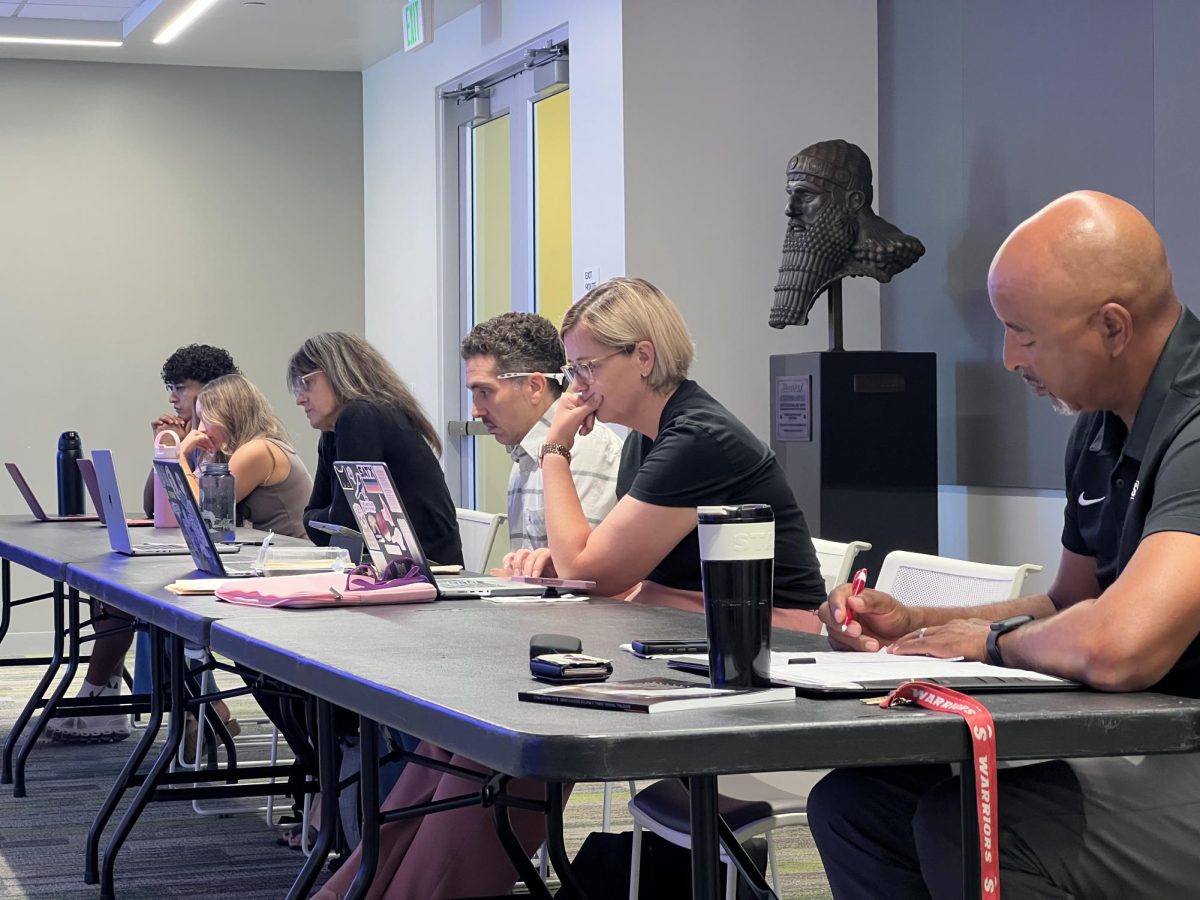Schools all over the world are switching to online classes in response to the COVID-19 pandemic. Although this transition is crucial in protecting the health of our communities, students may be struggling to adjust to these drastic changes in their education.
Some students have always thrived in online classes, while others have avoided them at all costs. In order to help out those students who may be feeling lost or overwhelmed as they are thrown into completely virtual schedules, some students with online learning experience offered a few tips!
Tip #1: Define Your Study Space
Emily Langdon-Lassagne (senior, Ethology) encourages students to create boundaries between their school time and their down time, even if they’re both done in the same house.
“Keep your study space separate from your sleeping and relaxing spaces,” says Langdon-Lassagne.
If you live in a house, this may mean setting up a study space in your living room, dining room, or a spare bedroom. However, the same idea can be applied if you live in a one room apartment. In this case, it would be most important to remember not to try to get homework done while lounging on your bed. Instead, try to limit your work to be at your desk.
According to the American College of Healthcare Sciences, there are several problems with studying in your bed.
Your brain associates your bed with relaxation and sleep, making it difficult to focus on work. The soft haven that you are used to falling into after a long day is designed to make you feel comfortable and sleepy, not to get things done.
On the flip side, if you get used to being productive while sitting in your bed, you may find it difficult to relax and unwind after you decide it’s time to go to sleep.
Finally, your bed is not designed for proper back support. It’s important to be aware of your back and neck as you spend hours reading and typing on your computer. A desk chair with a supportive backrest is a much healthier option.
The American College of Healthcare Sciences suggests that a standing desk is the best option because standing sends blood and oxygen to the brain, which can help with brain functioning. However, if you do not have a standing desk (most of us do not), try using your kitchen counter, bar, or island instead.
Tip #2: Define Your Study Time
In addition to creating a specific environment for school work, it’s also important to create a specific schedule.
Denae Davis (second-year graduate student, Social Work) says, “Keep your schedule as if you were still in-person.”
It can be easy to forget to log on and check Blackboard regularly, so having a designated time in your day for each class will alleviate the stress of constantly feeling like you’re going to miss something.
Stan State’s Tips for Virtual Learning page suggests taking the time to look through the expectations of your class and create a schedule accordingly. Remember to write down upcoming assignments and their due dates. In addition, because professors are still figuring out how to handle this rapid and major change, it will be important to regularly check for updates as they continue to iron out the details.
Creating a schedule for yourself will not only help you remember to get your work done, but it will also force you to put the books away and relax. As important as it is to focus and get school work done, it’s also important to recover and relax in between study sessions.
According to onlineschools.org, taking frequent, short breaks is crucial for maintaining productivity. However, what you do in those breaks is just as important as whether you take them.
The most effective breaks are when you move your body and get away from your screens. So as you come up to the break in your homemade schedule, think of some ways that you can get active. Take a short walk, do some exercises, or have a mini dance party!
Tip #3: Communicate
This includes communication with your classmates and your professors.
Although we may be physically isolated from one another, the wonders of technology have made it possible to stay in constant communication with others.
“Try to stay in touch with friends if you’re a social learner. You can use Zoom or Skype to call,” says Langdon-Lassagne.
Having people to study with and to hold you accountable is a great way to stay motivated in your classes. Especially for those who thrive in the social environment of the classroom, staying in touch with your classmates may be particularly important.
Communicating with your professors is also an important part of online class success. Stan State’s Tips for Virtual Learning include reaching out to your professors whenever you have questions or concerns. Now more than ever, professors will be needing feedback on what you do and do not understand.
Tip #4: Use Your Resources
Doing your readings and taking good notes are especially important when you aren’t able to throw up a hand and ask a question in class.
Although you may have been able to get by with “skimming” your class’ reading material in the past, having an in-depth knowledge of your textbooks prove to be very valuable in online classes.
Clarissa Correa (first-year graduate students, Psychology) suggests that you “prep your materials for online tests. Mark pages with what is in that section.” This will make it easier to locate the information that you need during open book exams. It will also force you to engage with your readings by using sticky tabs and highlighting key information.
Even if you don’t end up needing your book, it can be encouraging to know that you have a safety net.
Chong Yang (alumnus, English) suggests that when you get those test nerves, “know that you have your handy notes and textbook beside you.”
Tip #5: Take Care of Yourself
With all of these changes and the constant uncertainty that many of us may be experiencing, it can be difficult to remember to take care of ourselves.
Stan State’s Tips for Virtual Learning emphasizes the importance of caring for yourself. Remember to get enough sleep, eat nutritious foods, and move your body from time to time.
In addition to your physical health, don’t forget to care for your mental health. Reach out to your loved ones, take time to relax, and remember that we are all in this together.
All of us at the Signal wish you all the best as we move forward in this unique time!







